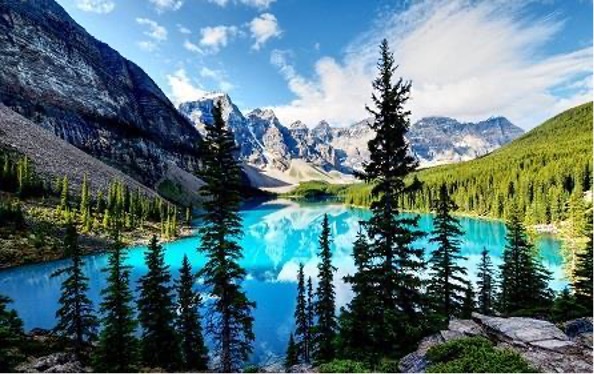Here is what you need to know about the National Park reservation system.

Several U.S. national parks are implementing reservation systems in 2025 to manage increasing visitor numbers. These systems vary by park, with reservations sometimes needed days or even months ahead.
Here’s what you need to know about reservation requirements, parking, popular trails, and other planning considerations.
Note: Most reservations can be made on recreation.gov.
Arches National Park
Reservations required: April 1-July 6 and August 28 onwards
Hours: 7 AM to 4 PM
Cost: Free with $2 processing fee
Booking: Recreation.gov, released in three-month blocks
Exemptions: Camping or tour reservations
What to Know
The park often reaches capacity by mid-morning during peak season. Early morning or late afternoon visits offer better parking and cooler hiking conditions. The Visitor Center lot typically fills by 9 AM. Popular trails like Delicate Arch and Devils Garden can get crowded by 10 AM.
Alternative Access Options
Book a guided tour through an authorized operator
Reserve a campsite within the park
Visit during the reservation-free period (July 7 – August 27)
Enter before 7 AM or after 4 PM
Glacier National Park
Season: June 13 – September 28
Areas requiring reservations:
-Going-to-the-Sun Road
-North Fork
Booking opens: February 12
Cost: Free with $2 processing fee per vehicle
Separate reservations needed for each area
What to Know
Some areas may be closed for construction
Book accommodations early, especially for July and August
Check road status daily—weather can affect accessibility
Download offline maps—cell service is limited
Carry bear spray—available for purchase at park stores
Haleakala National Park
Sunrise Reservation System required year-round
Limit: One reservation per vehicle every three days
Cost: $1 per ticket
Booking window: 60 days in advance
What to Know
Arrive at least 30 minutes before sunrise
Temperature at summit can be thirty degrees cooler than sea level
Bring warm layers and rain gear
Limited facilities open during sunrise hours
Pack water and snacks; no food services available early morning
Rocky Mountain National Park
Timed Entry System May 23 – October 20
Areas covered:
-Bear Lake Road Corridor
-Rest of park
Cost: Free with $2 processing fee
Two types of permits available:
-Bear Lake Road Corridor (includes whole park access)
-Park access excluding Bear Lake Road Corridor
What to Know
Bear Lake Road Corridor permits sell out fastest
Trail Ridge Road status affects park access
Free shuttle service available during peak season
Best wildlife viewing: dawn and dusk
Parking lots fill early at popular trailheads
Yosemite National Park
Reservations required:
February 8-23 (weekends)
February 17
Summer
What to Know
Firefall viewing in February requires special access
Parking challenges in Yosemite Valley
Free shuttle service within the valley
Chain requirements possible in winter
Limited food services during off-season
Zion National Park
Angels Landing Permit System
Application fee: $6
Permit cost if successful: $3 per person
Group size: Up to six people
Seasonal lotteries plus day-before lottery
Separate permit needed for camping
What to Know
Mandatory shuttle system in Zion Canyon
Limited parking at Visitor Center
Alternative parking in Springdale
Early morning or late afternoon recommended for popular trails
Flash flood risk in narrow canyons
General Planning Tips
Before You Book
Create a recreation.gov account in advance
Set calendar reminders for booking windows
Have backup dates ready
Check cancellation policies
Review park alerts and conditions
Maximizing Your Visit
Download park apps and maps before arrival
Book lodging 6-12 months in advance
Consider less popular entrance points
Visit during shoulder seasons
Have alternative activities planned
General Park Information
Entrance fees are separate from reservation fees
Accessibility services available at visitor centers
Pet restrictions on most trails
Limited cell service in many areas
Weather conditions can change rapidly
Reservation systems and park conditions can change, so always check official park websites before your trip and have backup plans ready. Consider signing up for park newsletters to receive updates about reservation systems and changing conditions.
Twist’s Take: If you want to (national) park it, you’ll have to reserve a slot!
